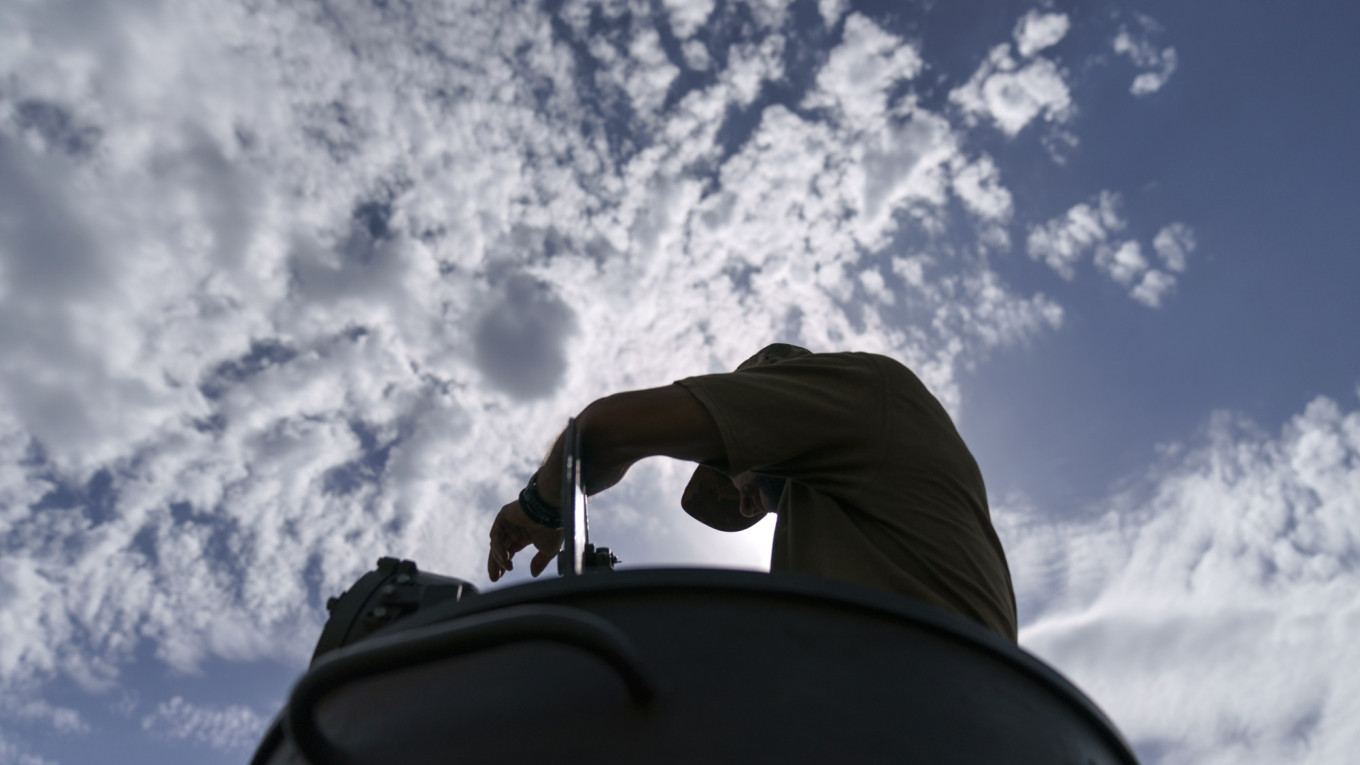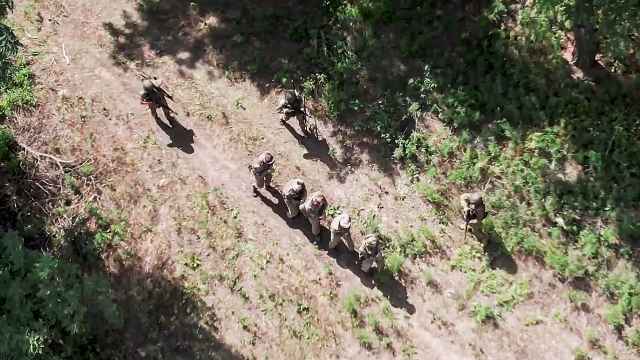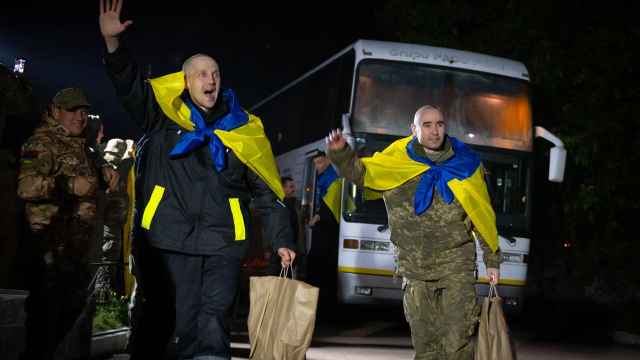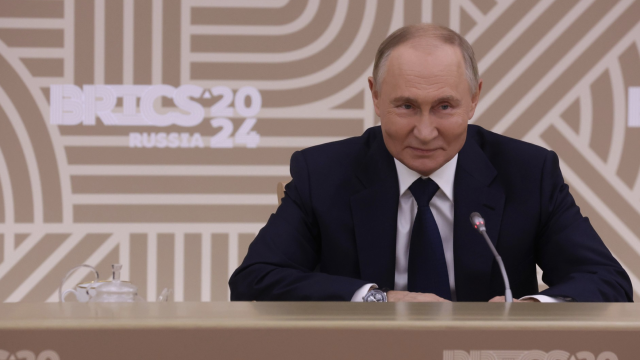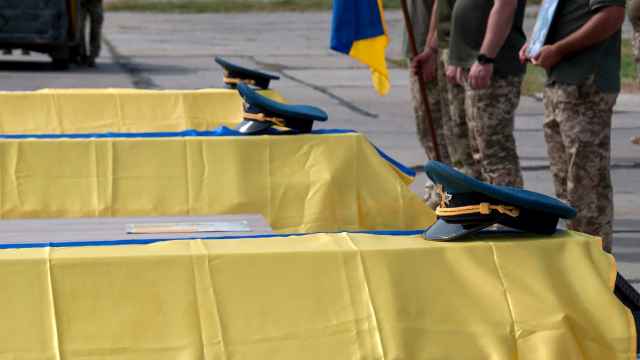Russian drones targeted Ukraine's southern Odesa region in the early hours of Sunday, with Moscow hitting a Danube port on the border with NATO member Romania in an attack condemned by Bucharest.
Moscow has hit Ukrainian port infrastructure on the Black Sea and on the Danube for weeks, since exiting a key deal that allowed the safe passage of ships carrying grain.
The attack came on the eve of a summit in Russia between Vladimir Putin and Turkish leader Recep Tayyip Erdogan, who hopes to revive the grain deal.
The Odesa region attacks also came as Kyiv has claimed some successes in its counteroffensive on the southern front this week.
Ukraine said Russia had hit the Odesa region with a barrage of Iranian-made Shahed drones, saying it downed 22 of them.
But Kyiv also said that some of the drones hit the Danube area, saying that at least two people were wounded in attacks on "civilian industrial" infrastructure.
The Russian army said it had targeted "fuel storage" facilities in the Ukrainian port of Reni, which lies on the Danube river that separates Ukraine from Romania.
Moscow has targeted the Danube ports of Reni and Ismail — both near Romania and across the war-torn country from fighting hotspots — several times over the last few weeks.
Reni — which also lies close to Moldova — is a sea and river port and important transport hub.
Bucharest's defense ministry said the attacks were "unjustified and in deep contradiction with the rules of international humanitarian law."
It also stressed that the Moscow drone attacks did not "generate any direct military threat to the national territory or territorial waters of Romania."
Neighbouring Moldova called the attack "brutal."
"Russia must be held accountable for every piece of infrastructure destroyed," Chisinau's pro-EU President Maia Sandu said on social media.
Ukrainian breakthrough in south
The Odesa region attacks came as Kyiv this week reported some successes on the southern front of its counteroffensive.
On Wednesday, Kyiv said it had recaptured the village of Robotyne, calling it a strategic victory that would pave the way for its forces to push deeper into Russian positions towards Moscow-annexed Crimea.
General Oleksandr Tarnavskiy, leading the southern counteroffensive, told The Guardian newspaper this weekend that Kyiv's army has made an important breakthrough by breaching Russian lines near Zaporizhzhia.
"We are now between the first and second defensive lines," Tarnavskiy — who led Ukrainian troops to liberate the southern city of Kherson — told the UK paper.
Heavily mined territory had slowed Ukrainian troops, saying that sappers had cleaned a route by foot and at night.
The paper quoted him as saying that Kyiv's forces are now back on vehicles and that Russia has redeployed troops to the area.
"But sooner or later, the Russians will run out of all the best soldiers," Tarnavskiy said.
"Everything is ahead of us."
He admitted difficult losses for Kyiv, saying that "we are losing the strongest and best."
A Message from The Moscow Times:
Dear readers,
We are facing unprecedented challenges. Russia's Prosecutor General's Office has designated The Moscow Times as an "undesirable" organization, criminalizing our work and putting our staff at risk of prosecution. This follows our earlier unjust labeling as a "foreign agent."
These actions are direct attempts to silence independent journalism in Russia. The authorities claim our work "discredits the decisions of the Russian leadership." We see things differently: we strive to provide accurate, unbiased reporting on Russia.
We, the journalists of The Moscow Times, refuse to be silenced. But to continue our work, we need your help.
Your support, no matter how small, makes a world of difference. If you can, please support us monthly starting from just $2. It's quick to set up, and every contribution makes a significant impact.
By supporting The Moscow Times, you're defending open, independent journalism in the face of repression. Thank you for standing with us.
Remind me later.


